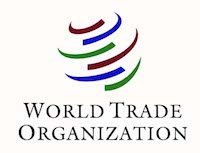 We anticipated this and now it’s here. The World Trade Organization (WTO) announced $1.01 billion retaliatory tariffs on U.S. goods authorized in the country-of-origin labeling (COOL) with Canada and Mexico. The WTO has upheld multiple times our neighboring country’s claim that the label creates an unfair advantage to U.S. products.
We anticipated this and now it’s here. The World Trade Organization (WTO) announced $1.01 billion retaliatory tariffs on U.S. goods authorized in the country-of-origin labeling (COOL) with Canada and Mexico. The WTO has upheld multiple times our neighboring country’s claim that the label creates an unfair advantage to U.S. products.
U.S. Senator Pat Roberts, R-Kan., Chairman of the Senate Committee on Agriculture, Nutrition and Forestry, said “As I’ve said time and time again, whether you support or oppose COOL, the fact is retaliation is coming. Today, the WTO announced just how much that retaliation will cost the U.S. economy. With the WTO announcement, farmers, ranchers and small businesses will soon be smacked with over $1 billion in tariffs. We must prevent retaliation, and we must do it now before these sanctions take effect. I will continue to look for all legislative opportunities to repeal COOL.”
The animal agriculture community has also responded. National Pork Producers Council (NPPC) President, Dr. Ron Prestage stressed the need to repeal the labeling provision. “America’s pork producers need congressional lawmakers to recognize the imminent harm our economy faces. Retaliation has been authorized, and our exports to the No. 1 and No. 2 markets will suffer and so will U.S. farmers, business people and consumers.”
The National Cattlemen’s Beef Association (NCBA) agrees that legislation to repeal COOL is needed. “If the Senate does not act, U.S. beef exports will face a 100 percent tariff in these countries, severely diminishing about $2 billion of beef exports annually.” NCBA President Philip Ellis, continued by saying, “The COOL rule has cost our livestock industry billions in implementation, it has violated our trade agreements with two of our largest export markets, it has resulted in the closure of several U.S. feedlots and packing facilities and it has had no effect on the price or demand for U.S. beef. The House voted in an overwhelming bi-partisan vote of 300-131 to repeal COOL and it is time for the Senate to do the same before retaliation damages the entire U.S. economy and irreparably harms our strongest trading relationships.”
“The WTO decision makes it crystal clear that Congress must act immediately to prevent retaliation against the U.S. dairy industry and others whose products could be targeted by Canada and Mexico,” said National Milk Producers Federation (NMPF) President and CEO Jim Mulhern. “At a time of overall softening in the U.S. farm economy due to a drop-off in export demand, we cannot afford further erosion in income resulting from the unnecessary loss of markets that would result from the WTO sanctions.”
The American Farm Bureau Federation (AFBF) President Bob Stallman, said “AFBF supports COOL that meets WTO requirements, and we support the remaining COOL programs, but the risk of retaliation by Canada and Mexico is too great. U.S. farmers and ranchers could suffer a serious blow if Congress does not act quickly.” AFBF urges the Senate to repeal COOL for beef, pork and chicken and eliminate tariffs.
However the entire animal agriculture community isn’t on the same page. National Farmer Union (NFU) President Roger Johnson has called the process “inefficient and ineffective,” and pointed to the immediate passage of voluntary COOL. Johnson said, “Congress now only has one clear path forward for ensuring U.S. regulations are in compliance with the WTO while preserving a meat label with integrity, and that solution is voluntary COOL. Voluntary COOL will solve the trade dispute once and for all, while protecting the integrity of the COOL label by defining what a ‘product of the U.S.’ is.”
The non-animal ag community has also responded. The National Corn Growers Association (NCGA) also calls for Congress to repeal the COOL law to honor our international trade obligations. “Congress must act to fix COOL now,” said Ohio farmer John Linder, chair of NCGA’s Trade and Biotechnology Action Team. “Noncompliance threatens our market share and has serious ramifications for the entire food supply chain and the rural economy. We urge Congress to bring the U.S. into compliance.” The Wine Institute also believes repeal is the answer. “We know U.S. wine is on their target lists. Retaliation by Canada and Mexico would set our wine exports back decades and cost billions of dollars in lost sales over time,” said Bobby Koch, President and CEO of Wine Institute.
